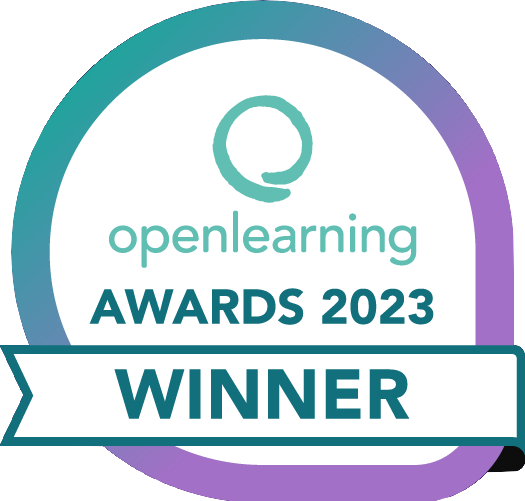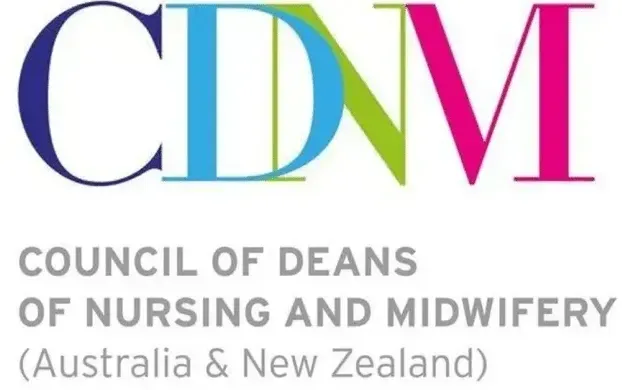Gerontological Nursing Competencies (GNC)

Registered Nurses
Nurse Practitioners
Gerontological Nursing Competencies (GNC)
Aged Care Transition to Practice (ACTTP) program
Funded by the Australian Government Department of Health, Disability and Ageing, the GNC ACTTP program is guiding registered nurses in aged care, improving their confidence and competence and encouraging them to pursue aged care nursing practice.
Delivery method
Online supported by virtual workshops
Duration
6 months (24 weeks)
What is the GNC program?
The GNC program offers two evidence-based short courses for registered nurses (RNs) working with older people. By the end of the program, RNs gain specialised gerontological nursing knowledge and skills to work effectively with older people and their families.
The program consists of two 6-month courses offered in a sequential pathway:
- GNC Essential course
- GNC Enhanced Leadership course
The courses are delivered through live, interactive online workshops, supported by activities in the online learning platform. Every learner is paired with an expert mentor from practice who provides support and guidance throughout the course.
The outcome of completing the GNC program is a comprehensive portfolio of evidence demonstrating an Essential or Enhanced level of specialist practice. The evidence collected as part of the portfolio is a combination of work-based and professional development activities.
Program development
The GNC courses were first launched in 2019 after a three-year research project to create the core competencies and course content. The GNC courses focus on the following 11 core competencies to provide person-centered care:
1
Living well for older people across communities and groups
2
Maximising health outcomes
3
Effective communication
4
Facilitating transitions in care
5
Facilitating choices within legal and ethical frameworks
6
Partnering with family carers
7
Promoting mental health and psychological well-being
8
Evidence-based dementia care
9
Pain assessment and optimal pain management
10
Providing palliative care
11
Enabling access to technology
What will you gain?
- The knowledge and skills required to work effectively with older people and their families.
- A portfolio of evidence about your essential or enhanced level of specialist practice.
- A mentor to support and guide you
- A career pathway for new graduates, early career and experienced Registered Nurses.
- Qualify for advanced standing or credit towards a postgraduate qualification (for those participants completing their portfolios)
- Eligible for Continuing Professional Development points
GNC Learner:
"Without this course and a better understanding of gerontological nursing, I wouldn't have been as confident to step up into that higher role."
GNC Mentor:
"I was drawn to apply for the GNC program… because I believe in what the program does and I want to invest in the future of aged care clinicians."
GNC Learner:
"A hundred percent the Essential course helped me to develop my knowledge on aged care and also I'm looking forward for the Enhanced course to develop more on leadership."
GNC Mentor:
"Becoming a mentor feels like a chance to give back, to share what I’ve learned, and to keep growing through the stories and insights of others."
What will you learn?
By the end of this course, you will be able to:
- Identify and apply the GNC core competencies and domains of practice as they relate to aged care contexts.
- Discuss expectations and experiences of mentoring to establish an effective mentoring partnership.
- Reflect on current gerontological nursing competencies in order to identify areas for practice development.
- Formulate an action plan to develop GNC competencies.
- Generate a range of evidence to reflect learning and development of GNC competencies.
- Create a professional portfolio of evidence to demonstrate competence as a specialist gerontological nurse.
By the end of this course, you will be able to:
- Identify and apply the GNC core competencies and domains of practice as they relate to aged care contexts.
- Discuss expectations and experiences of mentoring to establish an effective mentoring partnership.
- Discuss the attributes of effective clinical leaders in contemporary aged care.
- Formulate an action plan to develop GNC competencies.
- Analyse the major components of clinical governance and the effect these have on aged care practice and reform.
- Consider factors that act as a stimulus for change, resistance to change and successful change in aged care.
- Examine the key theories, methods and skills that have been found to enable continuous quality improvement in aged care contexts.
- Determine relevant and contemporary techniques and tools for analysing, reporting and managing error in aged care.
- Generate a range of evidence to reflect learning and development of GNC competencies.
- Create a professional portfolio of evidence to demonstrate competence as a specialist gerontological nurse.
Who can apply?
- Registered nurses working with older people who want to build upon their clinical and leadership skills in the aged care sector.
- Nurse practitioners and virtual e-Health nurses working with older people.
- Aged care providers looking to upskill their nursing workforce.
Who is eligible for a free fully funded place?
The GNC courses have received funding from the Australian Government Department of Health, Disability and Ageing to provide free fully funded places to:
- New graduate registered nurses working in residential and community aged care.
- Experienced registered nurses new to aged care (2 years or less).
- Registered nurses working in aged care from overseas who are newly practicing in Australia (2 years or less).
- Nurse Practitioners and e-Health nurses.
- First Nations registered nurses new to aged care (2 years or less).
Upcoming dates
All dates listed are provisional and are subject to change without prior notice. We recommend
contacting us to confirm dates.
2026
| COURSE | COHORT | START DATE | STATUS |
|---|---|---|---|
| GNC Essential | SUM26A | Thu, 04 Feb 2026 | Closed |
| GNC Enhanced Leadership | AUT26A | Thu, 19 Mar 2026 | Open - Register now |
| GNC Essential | AUT26B | Wed, 06 May 2026 | Limited places (Invitation only) |
| GNC Essential | AUT26C | Wed, 03 Jun 2026 | Open- Register now |
| GNC Essential | WIN26A | Wed, 01 Jul 2026 | Upcoming |
| GNC Essential | WIN26B | Wed, 05 Aug 2026 | Upcoming |
| GNC Essential | WIN26C | Wed, 26 Aug 2026 | Closed (Invitation only) |
| GNC Essential | SPR26A | Wed, 07 Oct 2026 | Upcoming |
| GNC Enhanced Leadership | SPR26B | Thu, 29 Oct 2026 | Upcoming |
Awards & recognition
Best Talent Development Program 2023
The Gerontological Nursing Competencies program was awarded Winner of the Best Talent Development Program at the OpenLearning Awards 2023.
Council of Deans of Nursing and Midwifery (CDNM)
The Gerontological Nursing Competencies program has received an official commendation from Council of Deans of Nursing and Midwifery (CDNM).
How do I apply?
Registered Nurses
Enhance your skills and knowledge in gerontological nursing through the guidance of an experienced mentor.
Organisations
Provide your registered nurses with an evidence-based program to enhance their knowledge and skills in gerontological nursing.
Mentors
Help develop the next generation of aged care nurses by providing guidance and support to learners.
Questions?
Resources & publications
News
Australian Government delivering over $30 million for regional and rural aged care workforce
Transforming aged care through online modules, mentorship, and community support
Publications
The development of the Australian gerontological nursing competencies
Resources
Gerontological Nursing Competencies: Implementation opportunities
Videos







